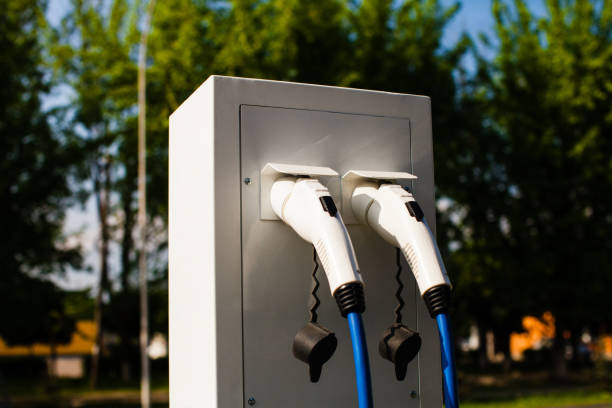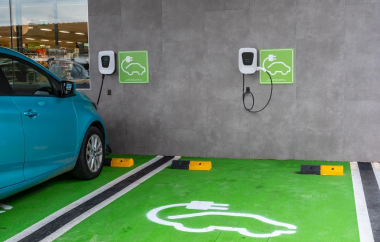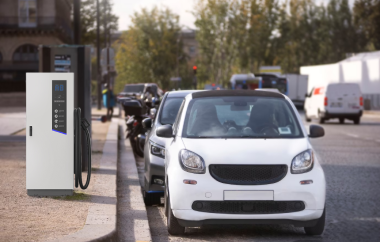240KW Dc fast charger – Discover the Power in 2024
240kW DC Fast Chargers Overview:
As the market for EVs expands across the globe, there is an increasing need for a faster and more efficient way of charging these vehicles. Presenting the charging industry’s superhero the 240kW DC fast charger. This technological masterpiece is a real powerhouse, reducing the charging time and turning long-distance EV trips into a reality.
This comprehensive guide will take you through all that you need to understand about the DC fast chargers in detail to enable you to make the right choices when it comes to your EV charging needs. Get ready for takeoff and be captivated by the world of DC fast charging.
Let’s Examine the 240kW DC Rapid Charger
Before getting into the specifics, let’s dissect the main parts of our champion charger: Before getting into the specifics, let’s dissect the main parts of our champion charger:
- 240kW Powerhouse:
Imagine the charger of your phone as being much, much bigger. This is about the charger’s power density which allows it to pump a lot of power into the battery of your electric vehicle in no time.
- DC Direct Delivery:
This charger uses DC (Direct Current) as opposed to AC (Alternating Current) which the charger in your home uses. It is a better and faster way of charging the battery predominantly of electric cars.
- Champion of Fast Charging:
This term well defines the charger because the charger is intended to charge the battery of your EV. Instead of being stuck in the same spot similar to a gas station for hours to charge the battery, think of getting a cup of coffee while charging the battery.
What is the Difference between the DC Charging and AC Charging?
Standard home chargers employ the use of AC power and the conversion to DC is done by your car’s on-board charger. This conversion process is not efficient and is time-consuming hence it hinders the overall performance. On the other hand, DC fast chargers do not include this step because they directly give DC to the battery, which charges much faster.
Function of a 240kW DC Fast Charger:
A 240kW DC fast charger can be pictured as a powerful sanctuary for your electric vehicle, which is a weary traveler. DC charging station charges your car battery to the fullest in a very short time.
Comprehending the Procedure:
- Direct Current Delivery:
DC fast chargers supply power to the battery of your electric car while home chargers supply AC power.
- Getting Rid of the Converter:
Normally, the onboard charger in your automobile transforms AC to DC. For faster charging, DC fast chargers don’t have this stage, thus making charging faster.
- High Power Output:
These chargers can enhance the charging of your electric vehicle battery with a power of 240kW hence quickly charging the battery while in use.
- Charging Standards:
Some standards are followed by the DC fast chargers like CCS (Combined Charge Standards).
How many minutes can a 240 kW DC fast charger save time for?
What makes a 240kW DC fast charger so attractive is the ability it has to charge the battery of your electric car to the desired level in a short time. Nevertheless, the question is – how much is that time saved?
Factors Affecting Charging Time:
- Battery Capacity:
Because they hold more power, the charging process of larger batteries will naturally take more time.
- State of Charge (SOC):
More time will be required to charge a battery that is very much depleted compared to the one that has a little charge left.
- Charger Output:
Even though 240kW is a lot of power, some chargers can provide a little less power.
- Vehicle’s Charging Capabilities:
The onboard charging system of your electric vehicle also matters.
Real-World Charging Times:
- In general, refilling the battery of a 240 kW DC fast charger to 100-120 miles takes from 15 to 30 minutes. Compared to the conventional home charging that may take several hours this is a big advantage.
- It should be noted that these are estimates. Some of the aforementioned factors may influence the actual charging timeframes in one way or the other.
- This study also found that the charging time could be significantly reduced to as low as one-twelfth of the total time through the use of 240kW DC fast chargers, thus making long-distance travel much more convenient.
Unveiling the Cost of DC Fast Charging: Is The Price Worth It?
First of all, there is no argument for the fact that DC fast charging is convenient, but how much is it going to cost? Let’s dissect it.
Factors Influencing the Cost of Charging:
- Charging Network:
There is a difference in the cost structures of the different charging networks. Some have a fixed or membership fee while others have a per kWh charge.
- Hours of Peak and Off-Peak:
The same as energy tariffs, the cost of charging could also depend on the current demand.
- EV Model:
Charging an EV also has a cost depending on the efficiency of the car in question.
- Comparing Prices:
Even though DC fast charging is usually more expensive per kWh compared to home charging, for many drivers the time is worth the money. DC rapid charging is quite beneficial, especially to people who commute or do not have many chances to charge their devices at home.
Is It Worth It?
Therefore, the usage of DC fast charging is a matter of preference and your needs. The extra cost may be justifiable in cases where one values ease of access and quick access to the item. However, if you are going to be charging mostly at home, it may be better to use DC fast charging for the occasional top-ups.
To make the right decision, one must compare the charging rates of networks and consider one’s driving patterns in general.

What are the benefits of the 240kW DC Fast Chargers?
Both the charging network and the owners of electric cars will be able to find a lot of benefits in the use of 240kW DC fast charger.
Quicker Times for Charging
- Decreased Wait Times:
The most apparent advantage is that charging time takes less time than the normal AC chargers.
- Enhanced Convenience:
Experience the world and waste less of your time waiting.
Increasing EV Adoption
- Overcoming Range Anxiety:
DC fast chargers also help to expand the use of electric cars since they deal with one of the biggest concerns of electric car owners.
- Facilitating Extended-Distance Travel:
The allowance of making long-distance traveling with few stops to charge the battery.
Better Infrastructure for Charging
- Enhanced Charging Network:
The installation of DC fast chargers is useful in the growth of a network which is vital for the growth of the EV market.
- Effective Charging Station Usage:
Fewer hours taken to charge a device mean that there will be fewer people using the charging stations at once.
Economic Benefits
- Higher Income for Charging Operators:
Since DC fast chargers serve more clients within a short time, they will generate more revenue.
- Possible Financial Benefits for EV Owners:
Charging faster is beneficial in the long run despite that single charging may be costly.
An Overview of Compatible Chargers for 240kW
To ensure perfect charging, your electric vehicle (EV) and 240kW DC fast charger should be compatible. The following summarizes the main compatibility factors: The following summarizes the main compatibility factors:
Standards for Charging
- CCS (Combined Charging System):
The most frequently used standard, enabling both AC and DC charging, is called the Combined Charging System (CCS). Most of the present EVs in the market have CCS compatibility.
- Other Standards:
It is necessary to check compatibility since some spaces might have different requirements.
Automobile Interoperability
- EV Model:
Not every EV can take the full 240kW of charging as a maximum. Some may have a lower maximum billing rate though.
- Charger Port:
Ensure that the type of connector of the EV charger you are using is either CCS or CHAdeMO and it corresponds with the port of the charger.
- Charger Output Power Rating:
Some of the chargers may have a lower maximum output in certain scenarios even though they are rated at 240kw.
- Voltage and Current:
The voltage and current delivery of the charger should be as required by your electric vehicle.
Conclusion:
The options of the 240KW DC fast charger is provided by KlookDC for a perfect EV experience. To achieve maximum convenience our high-power chargers are placed in the right positions. Thus, KlookDC, join the electric revolution. Contact us for partnership and inquiries.
Read more: 7KW single and double gun wall hanging AC pile for EVs

